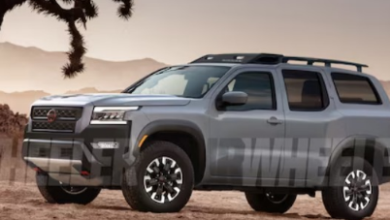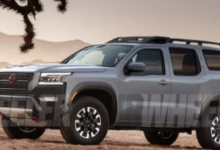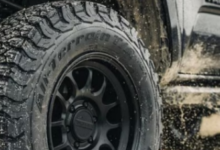8 Ways Bikers Can Observe Due Diligence On The Road

Riding a motorcycle can be dangerous even if you’re careful. It has many risk factors including weather, road conditions, other drivers’ actions, and the condition of your vehicle.
Bikers should be aware and take care to avoid these risks so they know what to expect and how to prevent accidents. Here are a few helpful tips on ensuring that your due diligence is at its best when you’re out on your motorcycle:
- Ride Defensively
Riding defensively means anticipating everything that could happen around you, whether you think it’s likely to happen or not. This way, you’re prepared if something does potentially go wrong.
One the road, you don’t always have the advantage of knowing someone else’s next move so it’s best to be prepared. Accidents similar to a fatal Citi bike accident in NYC usually happen when people are not completely aware of their surroundings.
Always assume that other drivers are likely to do the opposite of what they’re supposed to, like not signaling before changing lanes or turning because that will keep you more alert and able to act fast when you need to. Riding defensively requires commitment and practice, so take time learning defensive riding skills.
- Be Visible & Predictable
To reduce the risk of accidents, bikers need to be more visible and predictable for other drivers around them. Being predictable means sticking to your lane, not weaving in between cars or running red lights which can make other drivers think you might do anything so they act unpredictably around you as well. Just sticking to the book, so to speak.
If you want people to see you properly, make sure you use your turn signals, wear bright clothing, accessories or have lights on your bike that indicate that, and make sure your ride is easy to see in general.
Not observing these precautions makes it harder for other drivers to notice you, thus putting you at a higher risk of hitting another vehicle.
- Get A Bike That’s Roadworthy
A roadworthy bike is important to reduce the chances of you ending up in a road accident. Due diligence includes taking your bike to the mechanic for that routine checkup. If your bike isn’t tuned properly, then there’s a higher chance for your bike to have mechanical issues that could affect its maneuverability, making it dangerous to keep on running.
When picking a motorcycle, make sure you pick a model that it is suitable for you. For example, the seat height should be just low enough that you’re not tiptoeing when the bike is stationary. This will give you the most control over your bike in case you need to make a sudden stop.
- Use Proper Safety Gear
Wearing the right gear is crucial when getting on the road with a bike. Helmets, googles, gloves and vests do different things, but they are equally important when it comes to practicing due diligence.
A full-face helmet provides more protection than any other type of helmet because it covers the head, plus the back of your neck. Some helmets even come with removable plates that could come in handy if it’s too cold outside. When choosing what kind of goggles or glasses to use for your full-face helmet, it’s best to look for ones that don’t fog up as much or you can see clearly. Using a helmet with a tinted visor is also ideal when riding during sunny days to prevent glare.
The more comfortable you are, the easier it will be to focus on the road. This is essential as your state of mind does play a part when you need to act and think fast on the road to avoid hazards like errant motorists, potholes, or even animals on the road.
- Utilize Lane Positioning

There are five different types of lane positioning: single file, staggered formation (which changes depending on the traffic), shoulder-riding, center riding, and, full lane splitting (which is legal in California but not recommended by the DMV). There isn’t one specific positioning that all bikers should be using because the best option depends on the amount of space between you and other vehicles around you. Knowing which position works best for certain situations takes time to master, but is key to reducing the risk of accidents.
Your sitting position also matters. When driving at high speeds, it’s best to keep both hands on the handlebars and sit up straight and tall. This will allow you to have a better view of everything around you while also maintaining full control of your bike.
- Learn To Brake And Corner Safely
Braking and cornering safely is one of the most difficult, but most important parts of riding safely. The key here is to enter the turn at the right speed to prevent ‘overshooting’ a turn. While some bikes are capable of making sharper turns at higher speeds, it’s still better to develop a habit of slowing down as you approach the corner. This can be done by ‘feathering’ the brakes and easing on the throttle. You should also remember to ‘lean with the turn’ comfortably, especially when cornering at higher speeds, where trying to stay upright can throw off your balance.
- Mind The Weather
The weather can be unpredictable at times and that can be especially dangerous for a biker. You should always check the weather forecast before going out, even if you’re planning a short ride because. Catching a storm mid-way through your bike ride is not only dangerous as the road gets slick with mud and oil, but could also ruin an otherwise fun ride.
- Be Able To Perform Basic Repairs And Maintenance
It’s important to know how to do basic troubleshooting in case something goes wrong in our motorcycle while you’re on the road. The best way to learn about troubleshooting is by familiarizing yourself with regular motorcycle maintenance. The more you pay attention to maintenance, the easier it is to figure out how key motorcycle components work, allowing you to narrow down the cause of an unexpected problem.
Knowing what causes the problem is good, but you need the right tools to fix it. This is why it’s important to make sure that you carry around a small toolbox that includes wrenches, pliers, and a replacement spark plugs, and a few bolts. Other emergency tools that you should have include tire repair kits and a portable air pump in case you get a flat tire while on the road.
Conclusion
Exercising due diligence is vital for any motorcycle rider no matter how experienced they are. At the end of the day, accidents can happen to anyone at any level of riding experience. This makes it important for every rider to have a list of things that they should always remember in order to stay safe while they’re on the road.






